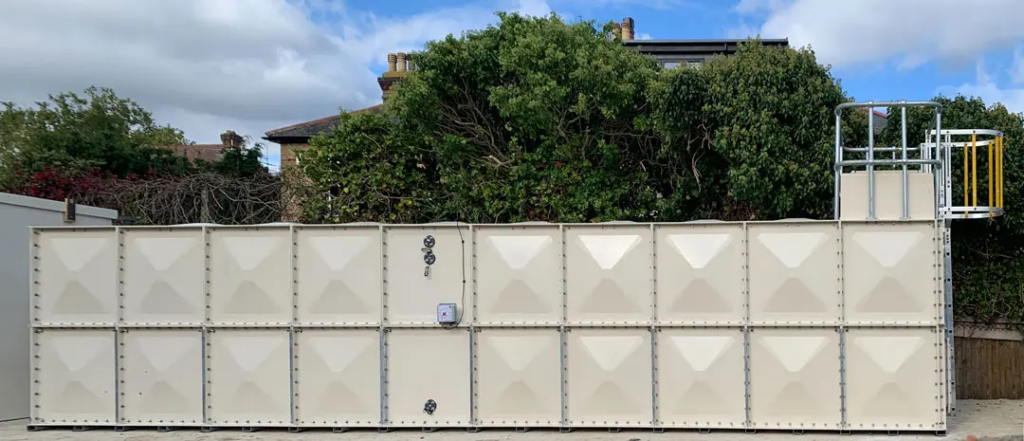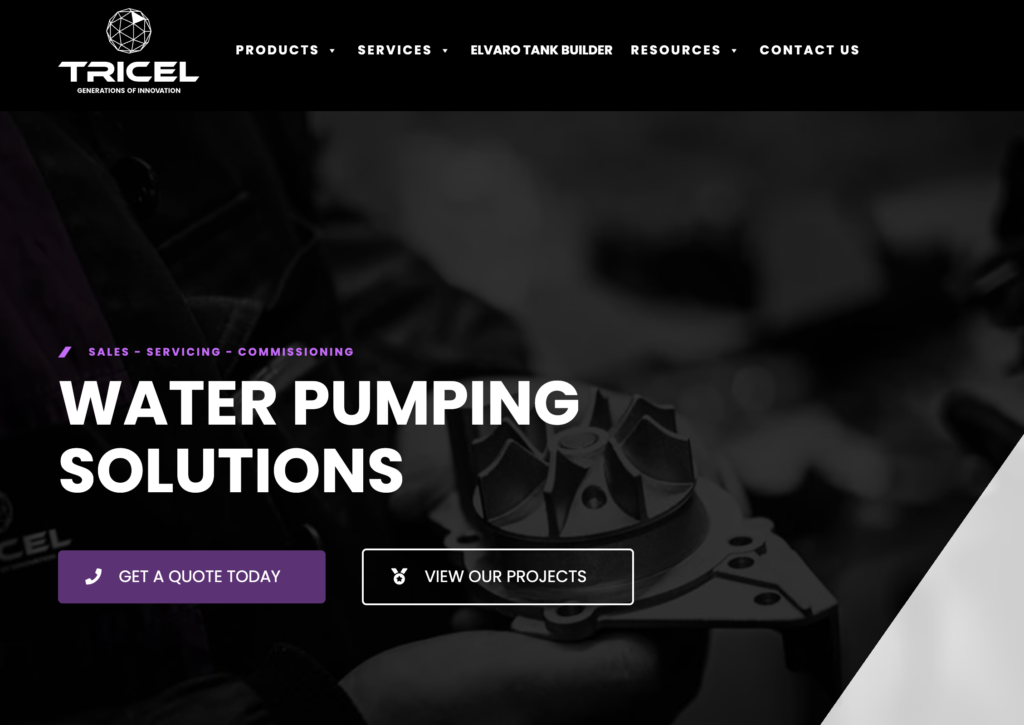- Water Storage Systems Tailored to Your Needs
FIRE SPRINKLER TANKS
Overview
Tricel Weston is a supplier of LPCB Approved sprinkler tanks that are trusted by commercial businesses, municipalities, and their insurers who rely on the availability of an emergency water supply to sprinkler systems in the event of a fire.
If you have any questions, feel free to call us or use our quote form
To speak to one of our agents online, click here
LPCB Approved Sprinkler Tanks
The LPS 1276 Issue 2.0 standard provides strict regulations that guide all fire sprinkler protection systems. These regulations stem from the increasing number of fires and the severe damage they cause.
For a sprinkler system to be truly effective, it must be designed, installed, and maintained correctly. According to the LPS 1048-1 scheme, specific requirements must be met for the approval of Sprinkler Contractors in the UK and Ireland. This ensures that installers are qualified to design, install, and maintain sprinkler systems that meet high installation standards.
Originally, sprinkler systems were developed to protect property and equipment. However, in recent years, their role has expanded to life safety. They now play a critical role in aiding personnel escape during emergencies. Additionally, sprinkler tanks are multifunctional, supporting fire detection systems, fire alarms, and fire suppression efforts.
Sprinkler Tank Capacity
Tricel’s sprinkler tanks offer a range of capacities, with options up to 1,300m³. The specific water capacity depends on several factors unique to each application. The capacity of a sprinkler tank is determined by the following key factors:
Duration of water supply
Mains refill capabilities – Refill duration limits are specified in BS EN12845
Wet or dry pipe system
Range between the highest and lowest sprinkler – This is based on sprinkler design standards
Full holding or reduced capacity – Reduced capacity may be acceptable if the mains refill capabilities are sufficient to meet the water requirements within regulations, depending on specific hazard classifications.
By considering these factors, Tricel ensures that each sprinkler tank is tailored to meet the exact needs of your system, offering optimal performance and compliance.
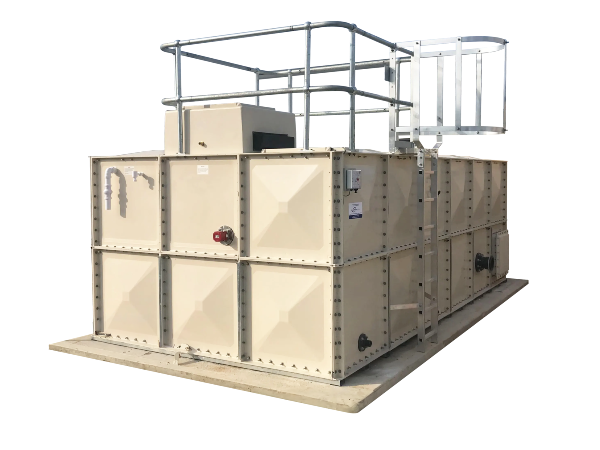
British Standards For Water Misting Systems
Minimum full capacity: 27,500 – 40,000 litres
This group is typically used in buildings such as hospitals, hotels, libraries (excluding bookstores), restaurants, schools, and offices, as well as data processing offices.
Ordinary Hazard Group 2
Minimum full capacity 105,000 – 140,000 litres
Typically used for laboratories, Laundries, car parks, leather goods factories & museums.
Ordinary Hazard Group 3
Minimum full capacity 135,000 – 185,000 litres.
Typically used for Broadcasting studios, railways stations, plant rooms, farm buildings. Department stores & shopping centres. Paper/cardboard/bookbinding factories.
FEATURED WATER INDUSTRY WHITE PAPER
Water Storage for Fire Suppression | Designing Resilient Systems with LPCB-Certified Sprinkler Tanks
Stay ahead in fire safety with Tricel’s expert guide on water storage for fire suppression systems. This white paper covers key design considerations, compliance standards, and performance insights to help you specify and install reliable GRP tank solutions. Ideal for engineers, specifiers, and facility managers.


Operational requirements of a BS EN 12845 & LPS1276 Issue 2.0 approved sprinkler tank
The sprinkler tank shall provide water for automatic fire sprinkler systems.
The tank shall be designed such that the need for emptying the tank for first time maintenance shall be a period of not less than 10 years. This period excludes the need for maintenance caused by accidental damage or exceptional circumstances. Tanks should be subject to regular inspection and maintenance of ancillaries in-line with the Approved Companies’ specifications.
REQUIRED HEIGHT CLEARANCE WITH MANDATORY GUARDRAIL AND BASE STEELS
From the finished floor level (FFL) to the ceiling height.
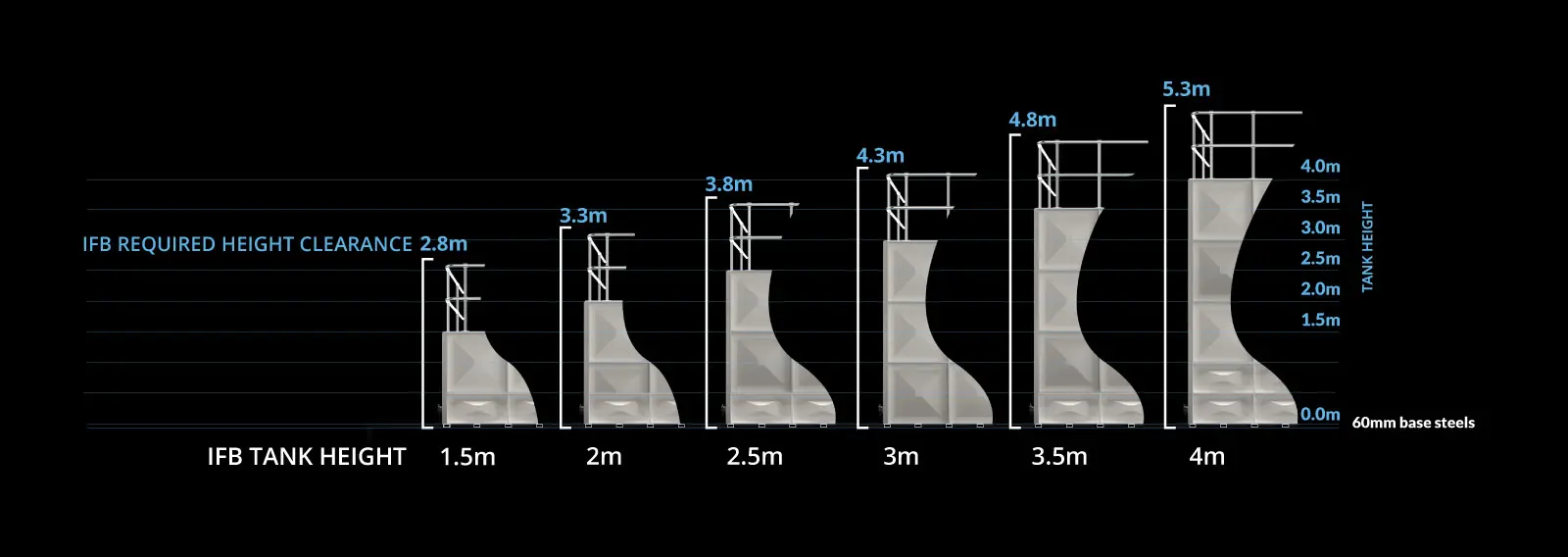
Required Perimeter Clearance for IFB Sprinkler Tank
| TANK TYPE | TANK HEIGHT | CLEARANCE REQUIREMENT | HEIGHT CLEARANCE |
|---|---|---|---|
| IFB | 1.5m | 500mm | 2.8m |
| IFB | 2.0m | 500mm | 3.3m |
| IFB | 2.5m | 800mm | 3.8m |
| IFB | 3.0m | 800mm | 4.3m |
| IFB | 3.5m | 1000mm | 4.8m |
| IFB | 4.0m | 1000mm | 5.3m |
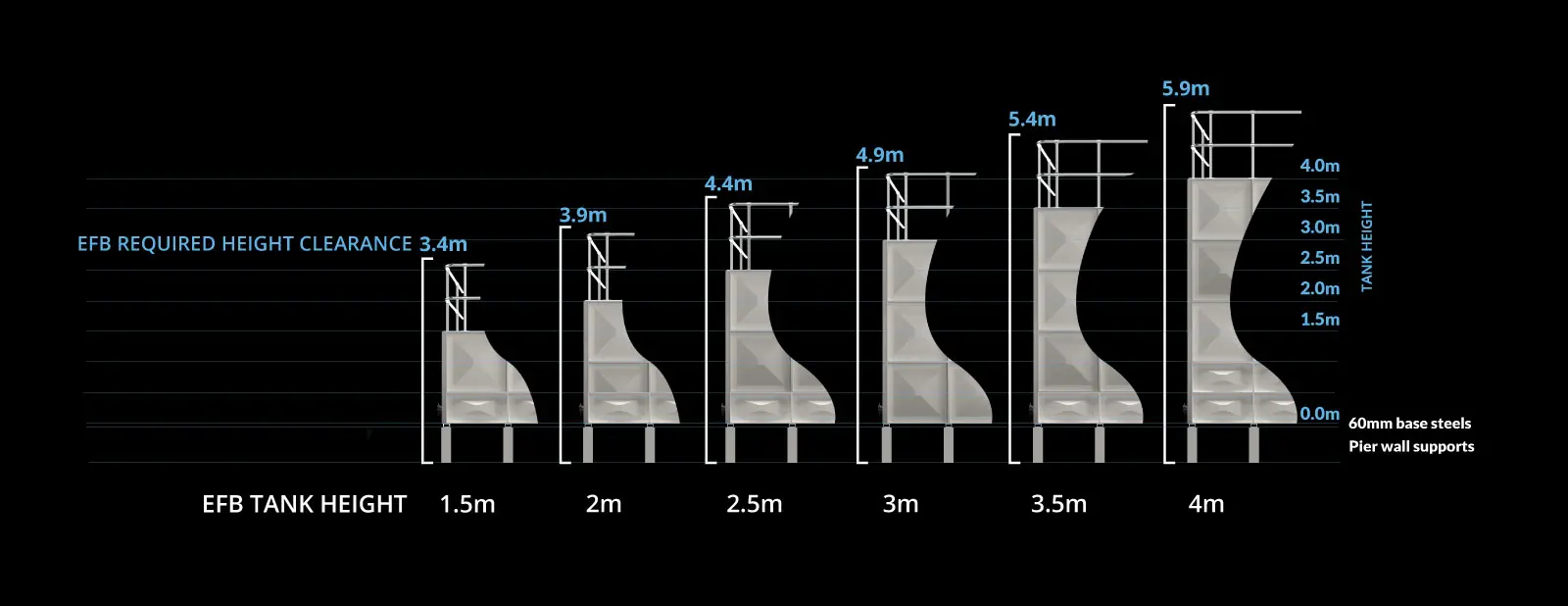
Required Perimeter Clearance for EFB Sprinkler Tank
| TANK TYPE | TANK HEIGHT | CLEARANCE REQUIREMENT | HEIGHT CLEARANCE |
|---|---|---|---|
| EFB | 1.5m | 500mm | 3.4m |
| EFB | 2.0m | 800mm | 3.9m |
| EFB | 2.5m | 800mm | 4.4m |
| EFB | 3.0m | 100mm | 4.9m |
| EFB | 3.5m | 1000mm | 5.4m |
| EFB | 4.0m | 1000mm | 5.9m |
Standard Ancillary Equipment
To enable personnel access for the maintenance and/or test of float or ball valves and other ancillary equipment, whilst keeping both feet on the platform, a permanently attached access ladder shall be provided for all tanks, which incorporates a platform and guard-rail. The ladder and access platforms shall conform to BS 4211. (images required)
Note: Where alternative access provision is required this will require separate approval by BRE Global.
To enable personnel to enter the tank, internal access ladders, where fitted, shall be designed to be corrosion resistant.
A ball or float valve for maintaining the required level of water in the tank shall be installed.
The valve shall be LPCB listed to LPS 2083 The Requirements and Test Procedures for the LPCB Approval of Automatic Water Level Control Valves for use in Above Ground Suction Tanks for Sprinkler Systems.
An access opening in the tank cover shall be provided. This shall be of such size and location to enable the testing, maintenance and replacement of the ball valve equipment. The cover of this opening shall be permanently attached by hinges or other means. It shall be securely latched when closed and be capable of being opened by hand.
The tank shall include a device to show the total amount of water present and which monitors the quantity of water down to below the suction pipe outlet to the pumps.
This device shall be capable of being maintained without draining the tank. The primary gauge shall be fitted to the external face of the tank at a height not greater than 1.75m from the tank base. Any additional remote readouts shall be suitable for use in the location in which are they are placed.
Note: “cat and mouse” type indicators are not accepted.
Refill rates for full capacity tanks in BS EN 12845 states that ‘The water source shall be capable of refilling the tank in no more than 36 hours’.
To view the available inlet valve flow rate chart for use in our LPS 1276 Issue 2.0 accredited sprinkler tanks, please view our chart here.
Any immersion heater provided must be of a type that shall not burn out when exposed to the air, e.g., when the water level in the tank is lowered below the immersion heater. The heater shall be of the dual element type. Each element shall be capable of operating independently and preventing water in the vicinity of the ball or float valves from freezing, to maintain the operational function of the tank. Each element shall be capable of being maintained or removed without draining the tank;
The provision of an immersion heater can be omitted only where the ambient water tank temperature around the ball or float valve can be maintained or shown not to drop below 4°C.
The tank shall be fitted with a drainage facility that will enable the tank to be emptied for maintenance and inspection purposes.
The tank shall be fitted with an outlet pipe to feed the sprinkler suction pumps. An LPCB approved (LPS 2070) Vortex Inhibitor shall be fitted to the inlet of the outlet pipe.
An overflow arrangement in compliance with the relevant water authority requirements shall be installed.
An access hatch at the base of the tank with a minimum opening of 600mm x 600mm or 600mm diameter shall be provided.
Where required, LPCB approved (LPS 1185) stop valves shall be used.
A level switch linked to the BMS to advise when the effective capacity volume has reduced by 10%.
Where balance pipes are installed, stop valves shall be fitted to enable isolation of each tank for maintenance. These valves shall be monitored.
Read More...
- Cold Water Storage Tanks
- Product Guides & Comparisons
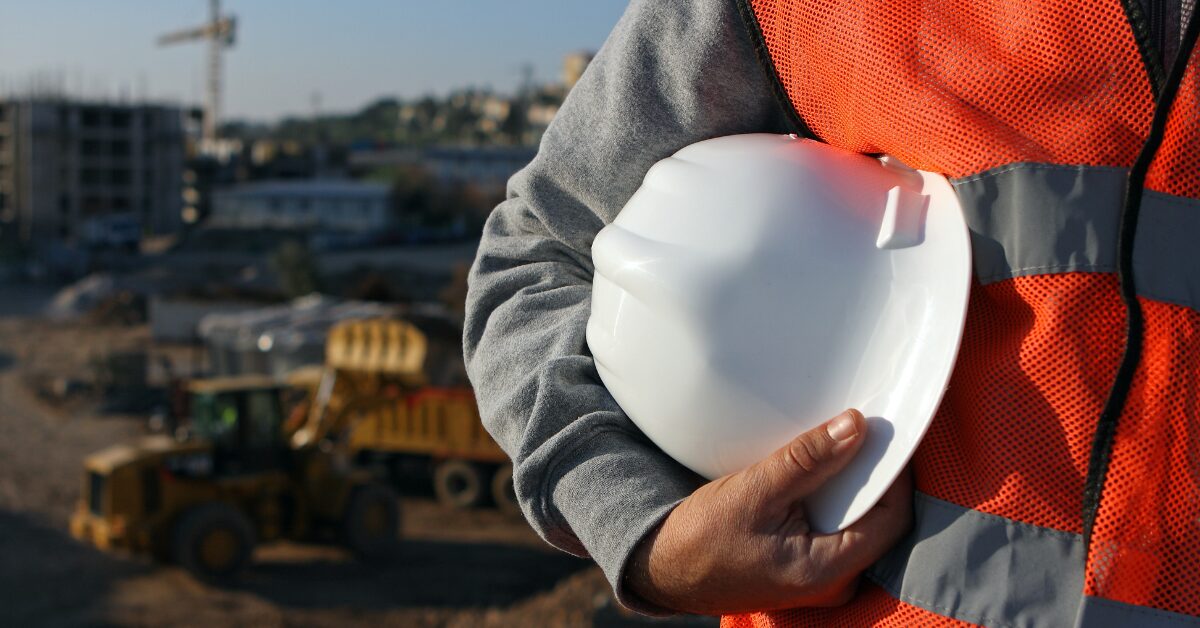
Which Water Storage Tank Is Right for Me? A Practical UK Guide for Property Owners, Contractors & Specifiers
Selecting the right water storage tank can feel overwhelming — but it doesn’t have to be. This practical UK guide walks you through water-use classification, sizing, material selection, installation constraints and compliance requirements so you can choose a tank that performs reliably, meets regulations, and avoids costly mistakes.
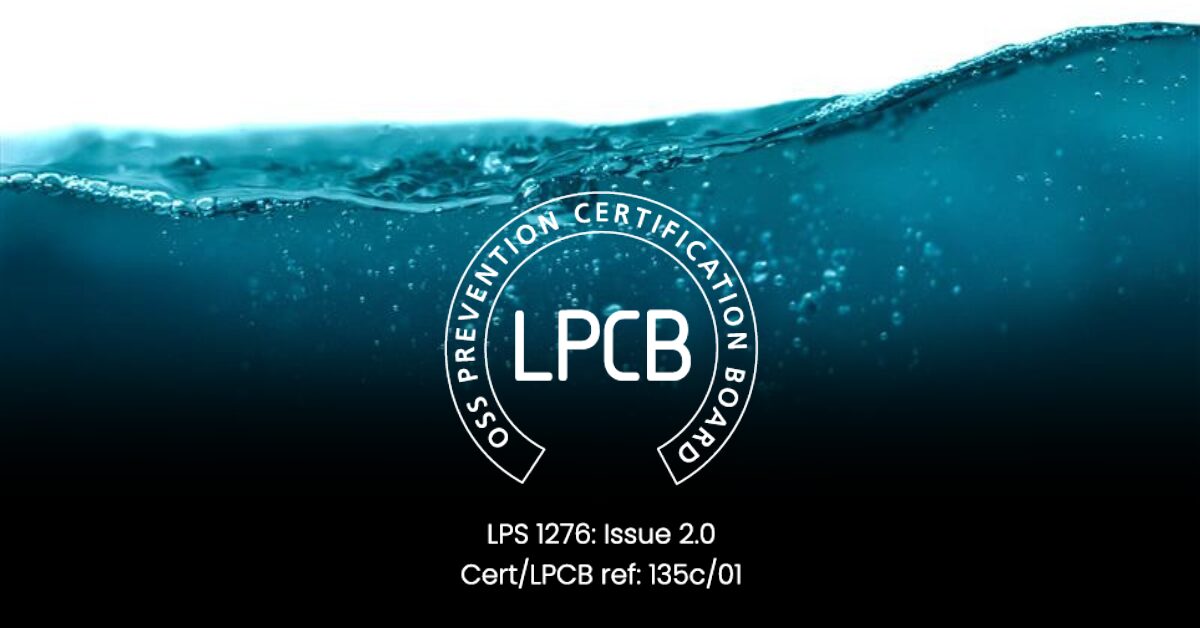
LPCB Approved Sprinkler Tanks
Our LPCB approved sprinkler tanks are designed and manufactured to the highest safety standards, providing reliable water storage for fire protection systems. Fully certified to meet Loss Prevention Certification Board requirements, these tanks ensure compliance, durability, and peace of mind for critical fire safety applications.
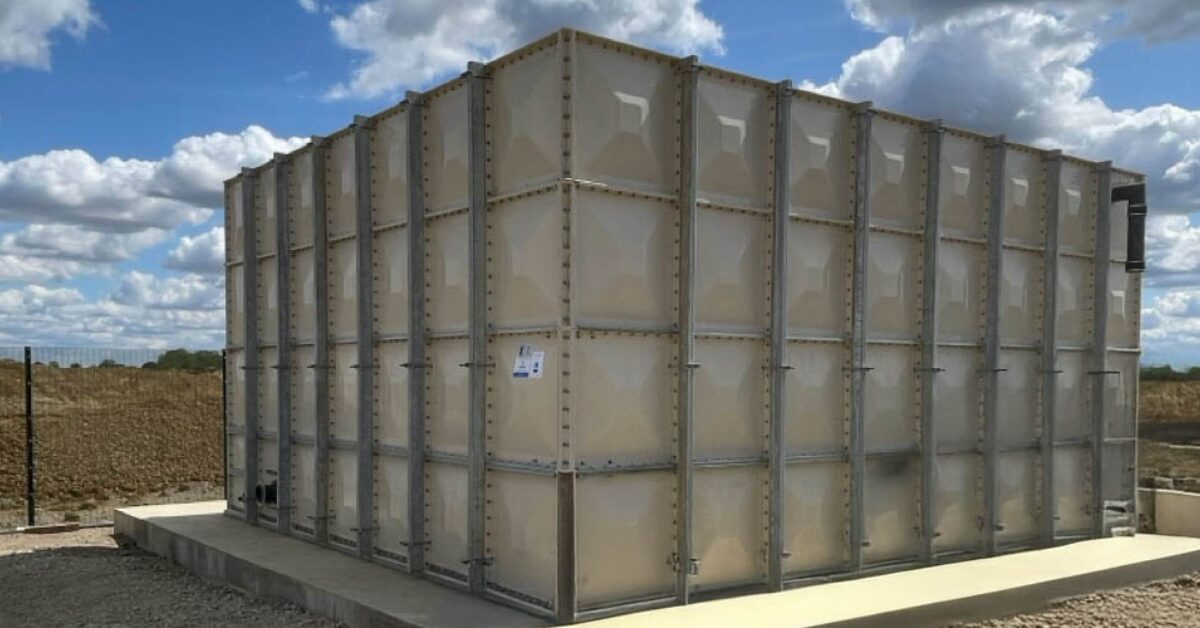
Custom Built Sectional Water Tanks: Tailored Storage for UK Infrastructure
Tricel Water UK delivers custom-built modular water tanks designed to meet the unique demands of modern infrastructure. From restricted access sites to WRAS-approved potable water systems, our bespoke solutions offer flexibility, durability, and full compliance with UK standards.

BS EN 13280 Cold Water Storage Tank Standards | Tricel Water UK
BS EN 13280 is the recognised British and European standard for cold water storage tanks, outlining essential design, construction, and performance requirements. Meeting this standard ensures water storage systems are safe, durable, and fully compliant with UK regulations.
